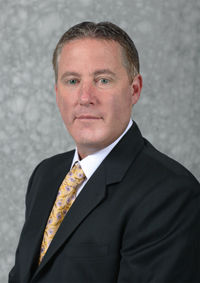A rival’s whistleblower lawsuit ostensibly turned on allegations of bad billing but was really a bid to stifle competition, argues Millennium Labs in a motion to dismiss.
The rival, Calloway Labs, had charged Millennium and several other competitors with violating the federal false claims statute and various state laws. It argued that the labs were seeking to entice doctors to use their medication monitoring services by showing the clinicians the extra revenue they could bring in by billing government or private payers for such services — up to $2 million in a year, in one scenario. The testing is meant to help physicians ensure chronic pain patients are being managed appropriately and are not abusing prescription opiates or other painkillers.
“We weren’t the only target of their witch hunt,” Millennium president Howard Appel told MM&M. “At least four other labs…had the same whistleblower complaint filed against them.” Those included Ameritox, Avee Labs, Concentra Labs (d/b/a Advanced Toxicology Network), and Aegis Analytical Labs. All of these cases were voluntarily dismissed in June, leaving the Millennium case.
The pivotal allegation in Calloway’s suit is that the lab encourages doctors to submit a claim for multiple units of a CPT code for each drug screened using an in-office urinary drug test kit, rather than claim only one unit of the code per kit.
Appel defended the process. “There’s no question that the billing process is legal,” he said. “[The Centers for Medicare and Medicaid] provides clear guidance to that effect.”
Indeed, a memo accompanying Millennium’s motion quotes AMA guidance stating that CPT code 80101QW is properly used to bill for “each drug class” tested with a multi-drug test kit. That refutes Calloway’s contention that “the billing of CPT code 80101QW is fraudulent because payment for [the code] would only be proper if it was billed in one unit.”
So why did Calloway file suit against Millennium, and why wasn’t the case dismissed like the others? “We believe it was retaliation for the complaint we filed in the latter part of 2009,” said Appel, referring to a defamation lawsuit his firm brought against Calloway in December of that year. “[Calloway] was sending around e-mails and making false accusations about Millennium and wouldn’t stop, so we were forced to take action.”
Calloway’s sales force was telling customers that Millennium practices involved billing insurance twice for the same service, and other false information regarding the legality of its physician screening model, Millennium asserts in the memo filed on July 22.
“The situation became so intolerable that in December 2009, Millennium finally sued,” the memo states. “Within days, Robert Cunningham, who happened to be Calloway’s compliance officer, filed a qui tam complaint” parroting many of the same accusations.
Cunningham died last December. The whistleblower case is being brought in Massachusetts District Court by his estate, which filed an amended complaint in February.
Calloway sells prescreening tests to physicians, as well, according toits website. The lab describes its collection device, called theCalloway Cup, as being “excellent for early identification of possibleproblems with patients undergoing pain management treatment.”
But Appel said Calloway found itself at a competitive disadvantage by declining to support physicians’ demand for fair reimbursement for point-of-care testing.
“Calloway is not a party to the qui-tam lawsuit and therefore cannot comment on it,” said spokesman David Ball.
Millennium is being accused by another lab of encouraging pain management physicians to bill improperly for point-of-care testing, as a way to entice those physicians to become clients. In a complaint filed last March, Tennessee-based Aegis Sciences charged Millennium with “fraudulent, unnecessary and duplicative testing and billing practices,” along with illegal kickbacks and fee-sharing arrangements, to win customers.
The Aegis case lays bare some of the sales and marketing efforts Millennium used to attract doctors. In an email cited in the complaint, a Millennium sales rep alleged to a potential physician customer that she stood to “lose an estimated $250,000 to $400,000 in potential point-of-care reimbursements” during the months she planned to be out on maternity leave.
“Unlike Aegis, Millennium seeks to steer pain management physicians tothe use of its services by touting a relationship with Millennium thatcombined with point-of-care testing devices can produce a lucrativeprofit center for physician practices,” Aegis argues in a complaintfiled in US District Court in Nashville.
One scheme it espouses, per the complaint, involves providing urine testing cups to practices “sometimes free, and sometimes below market value” and then teaching docs to bill for the screening test and then send the urine sample to Millennium for additional and duplicative testing.
Feds take a critical view of labs providing free equipment to referral sources, saying the item must be used solely for, say, collecting specimens. “While providing the cups alone is not unlawful, the context in which Millennium markets and provides such items creates independent value to referring physicians,” insists Aegis, and contradicts anti-kickback and Stark laws.
Aegis provides such cups, too but, considering them to be “of very limited utility for pain management physicians,” requires doctors to agree not to bill government or private payers for the in-office screenings.
Other schemes espoused by Millennium and alleged by Aegis include providing free personnel like lab assistants and free billing tools and training to referring physicians, as well as allowing physicians to purchase a fractional ownership share in a local Millennium-affiliated screening lab then letting the physician share in the lab’s billings for urine samples he or she sends for testing. Both practices may run afoul of anti-kickback and Stark laws.
The case is Aegis Sciences Corp. v. Millennium Laboratories Inc., 3:11-cv-00294, US District Court, Middle District of Tennessee, Nashville Division.








